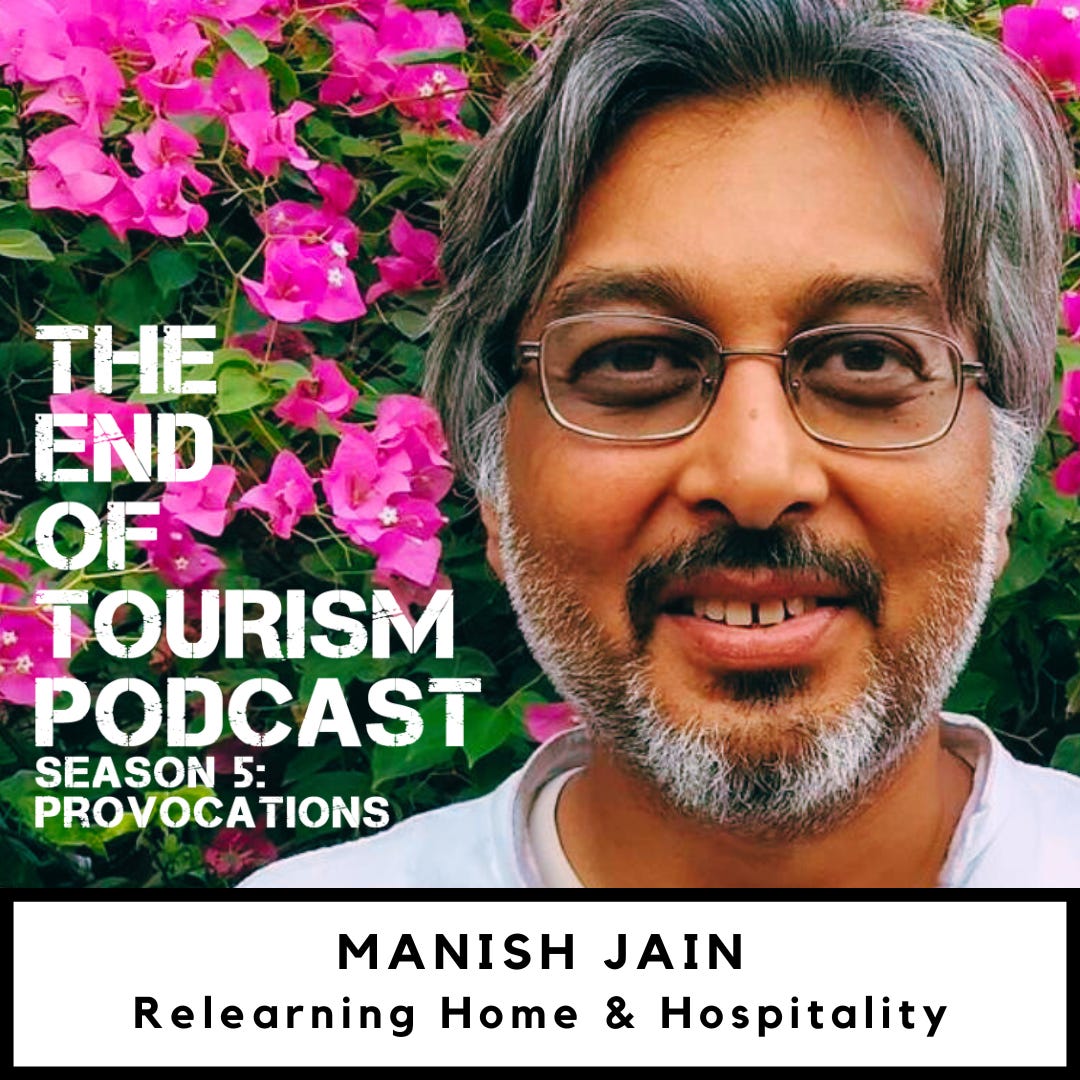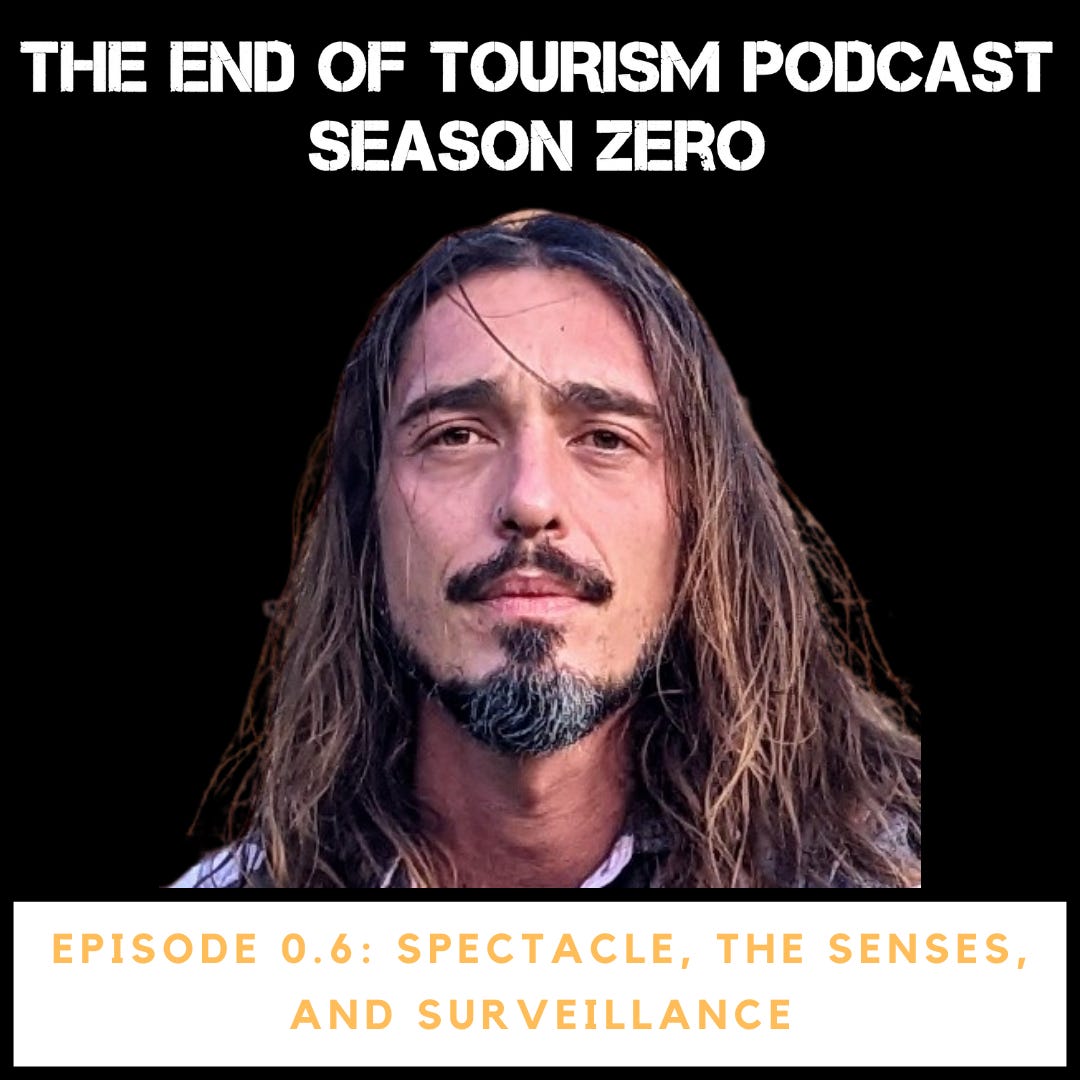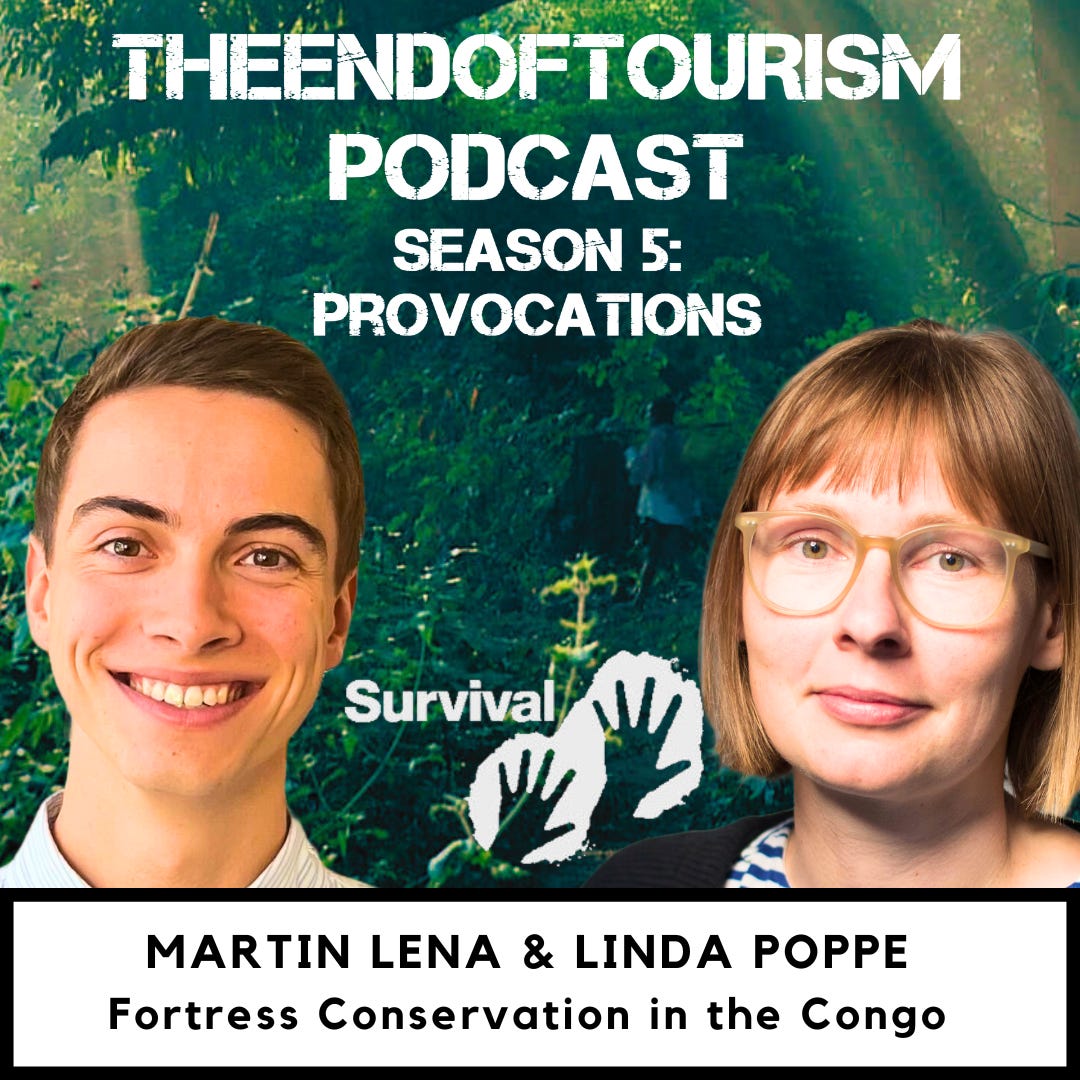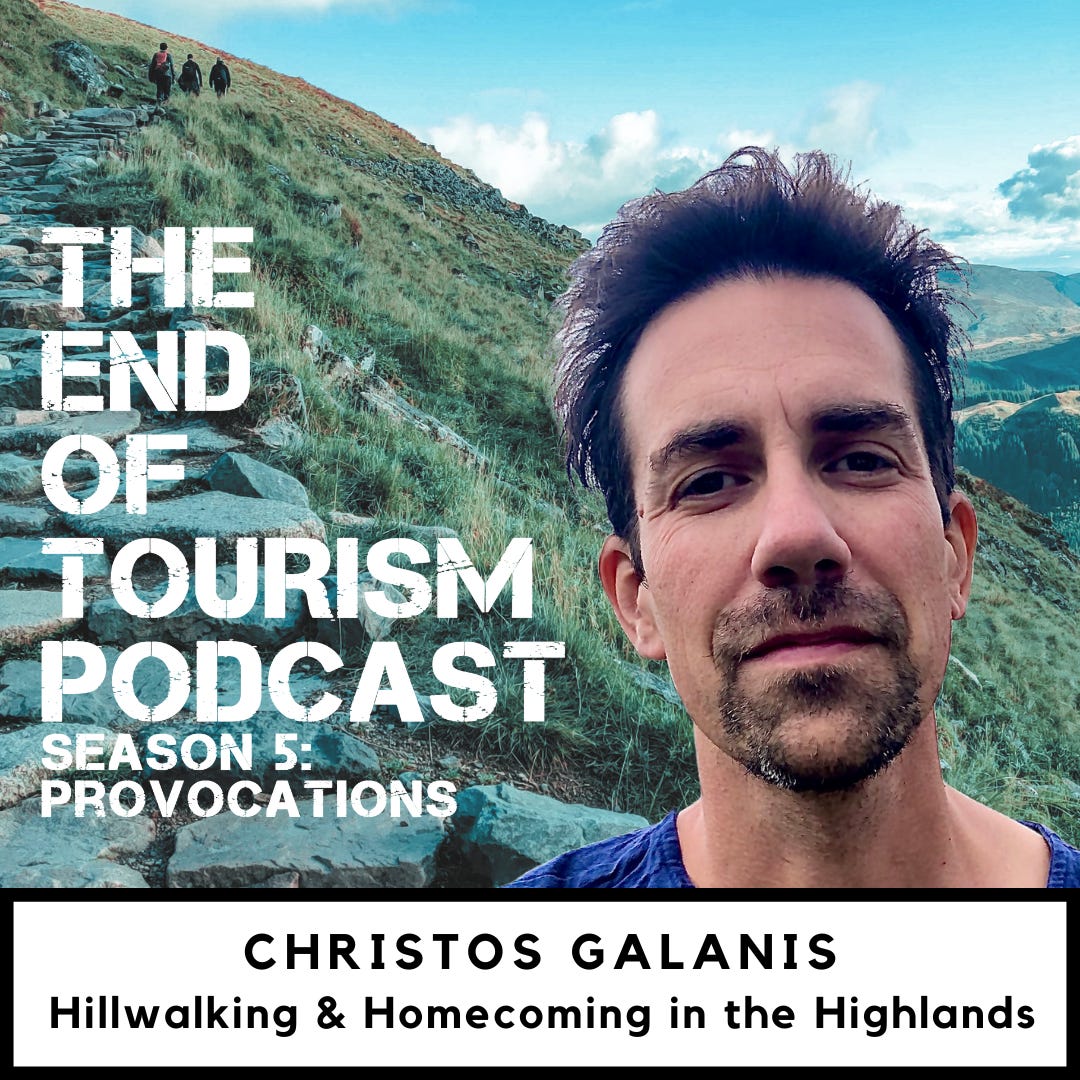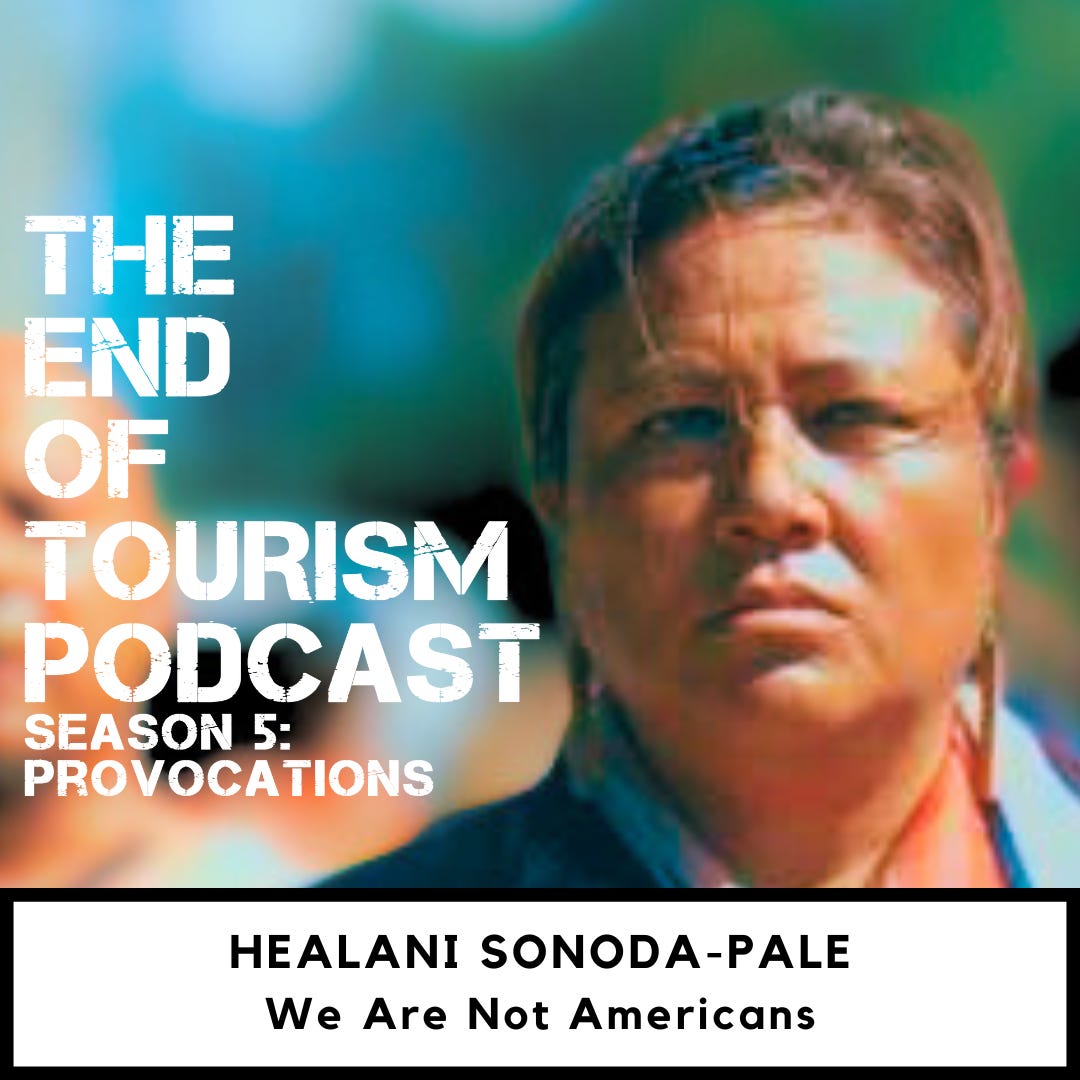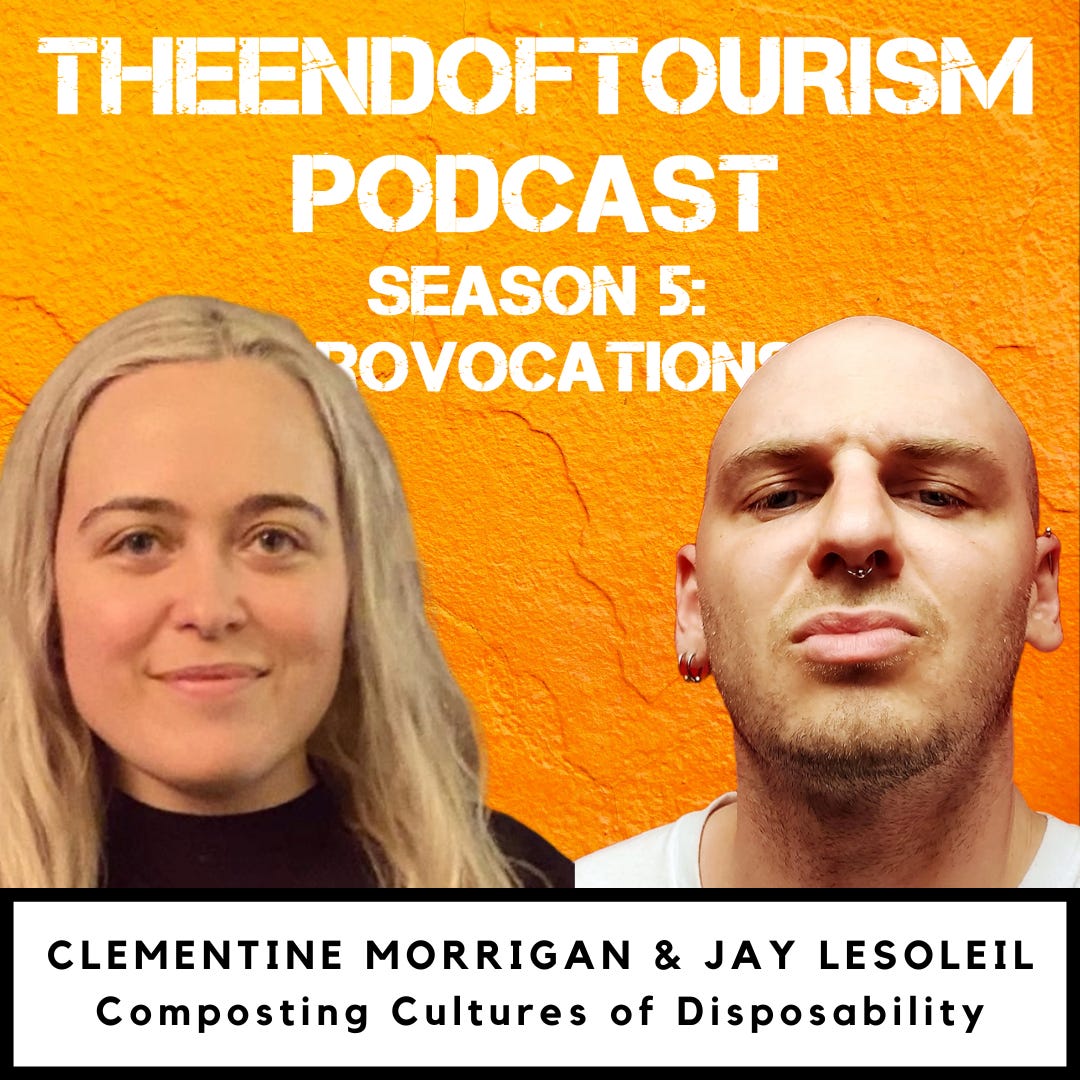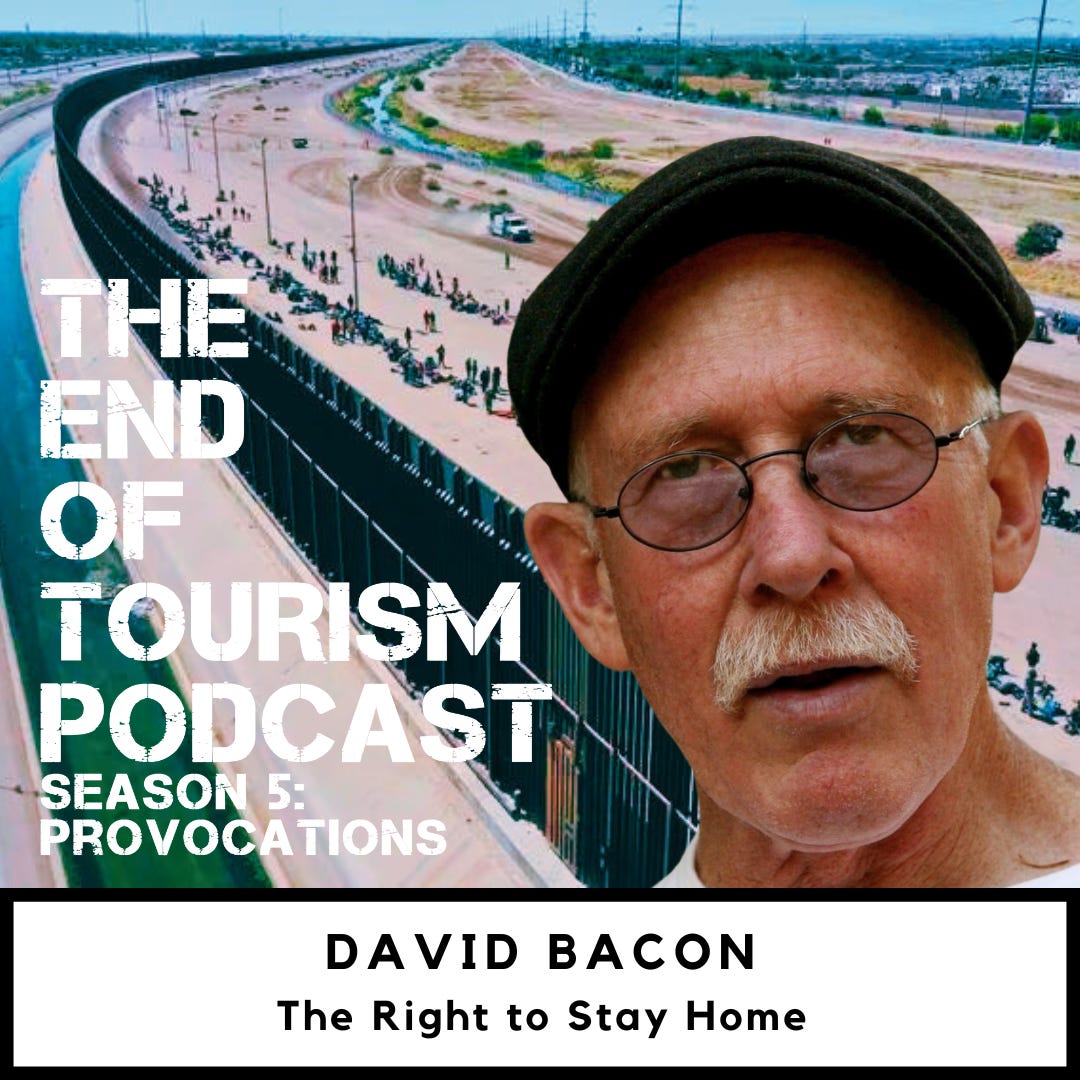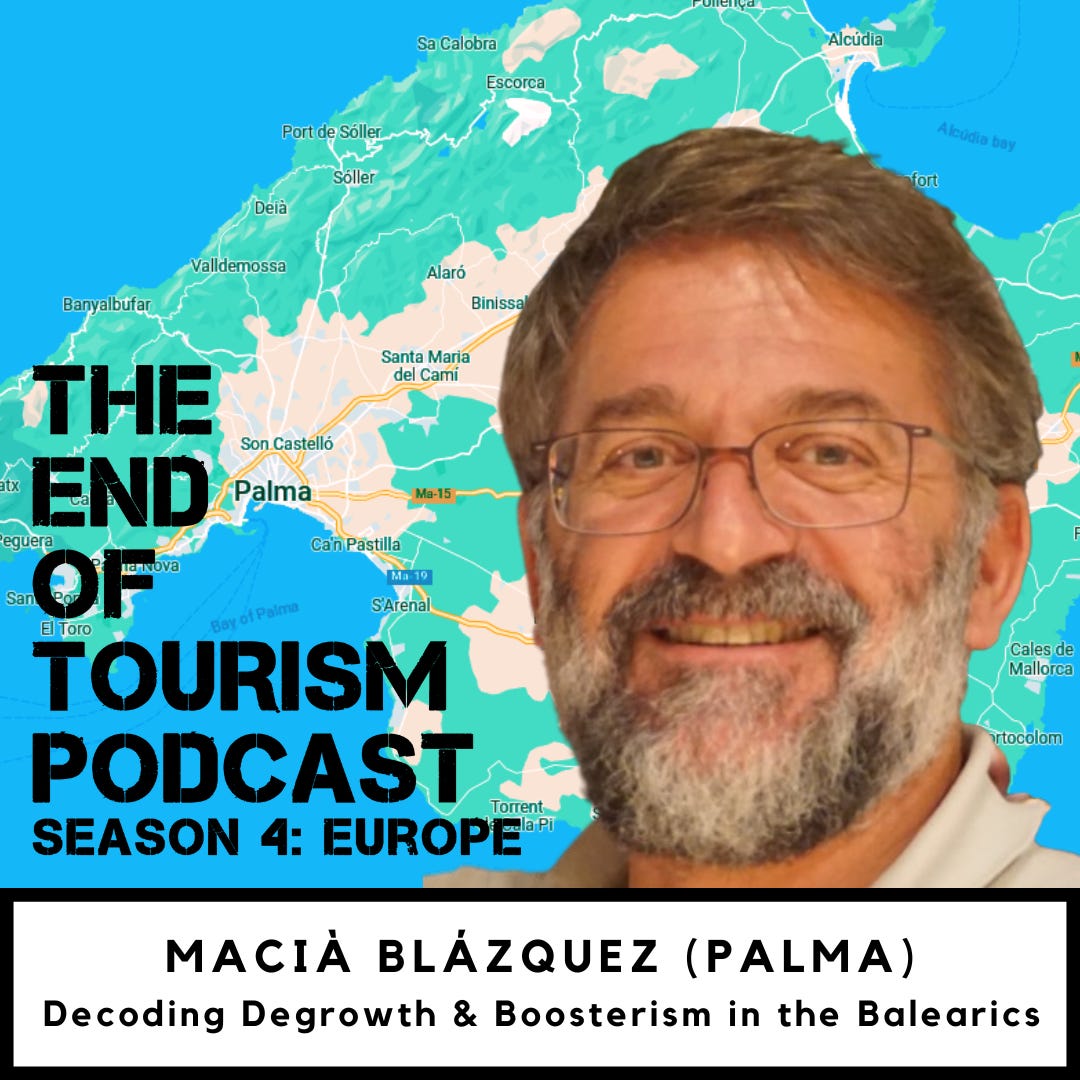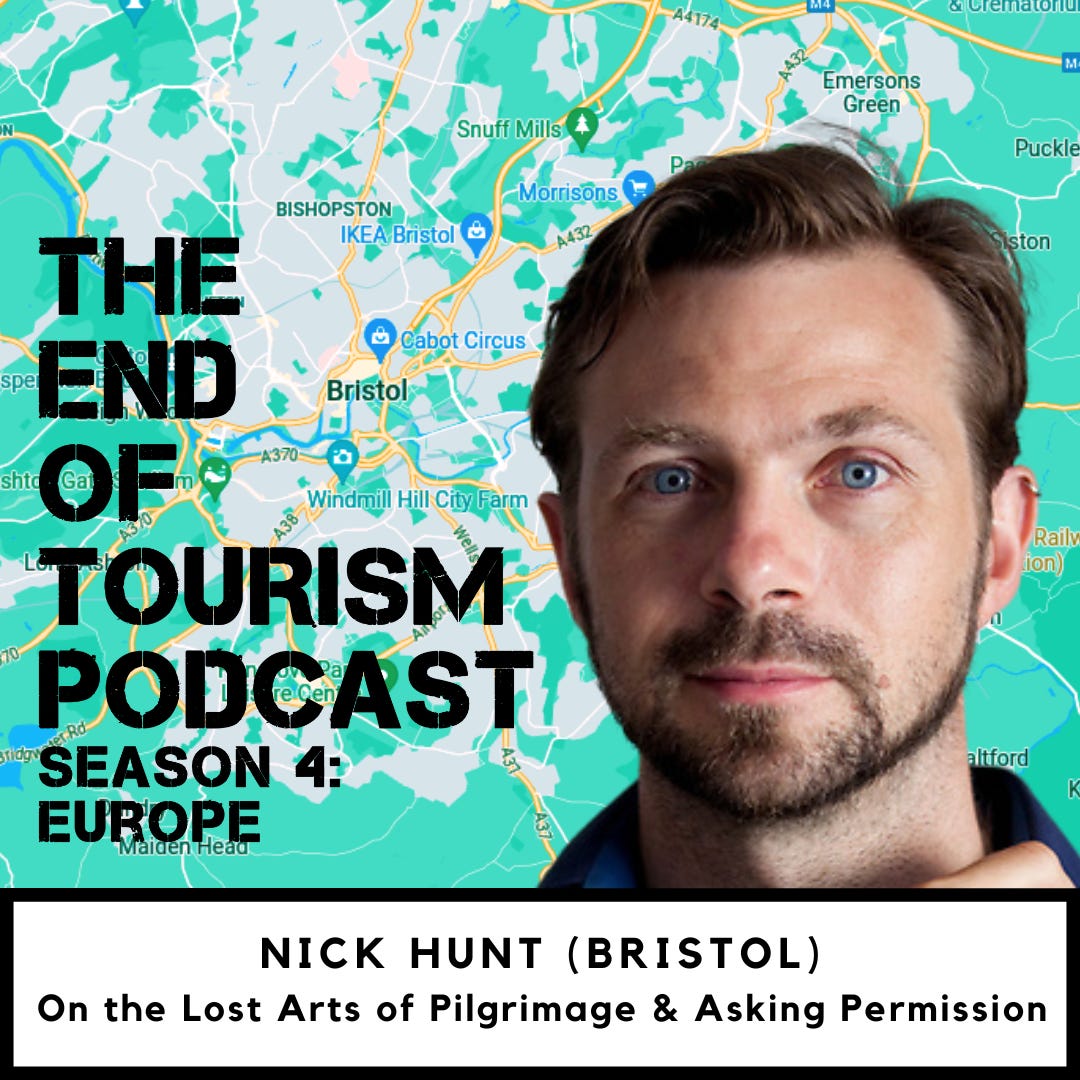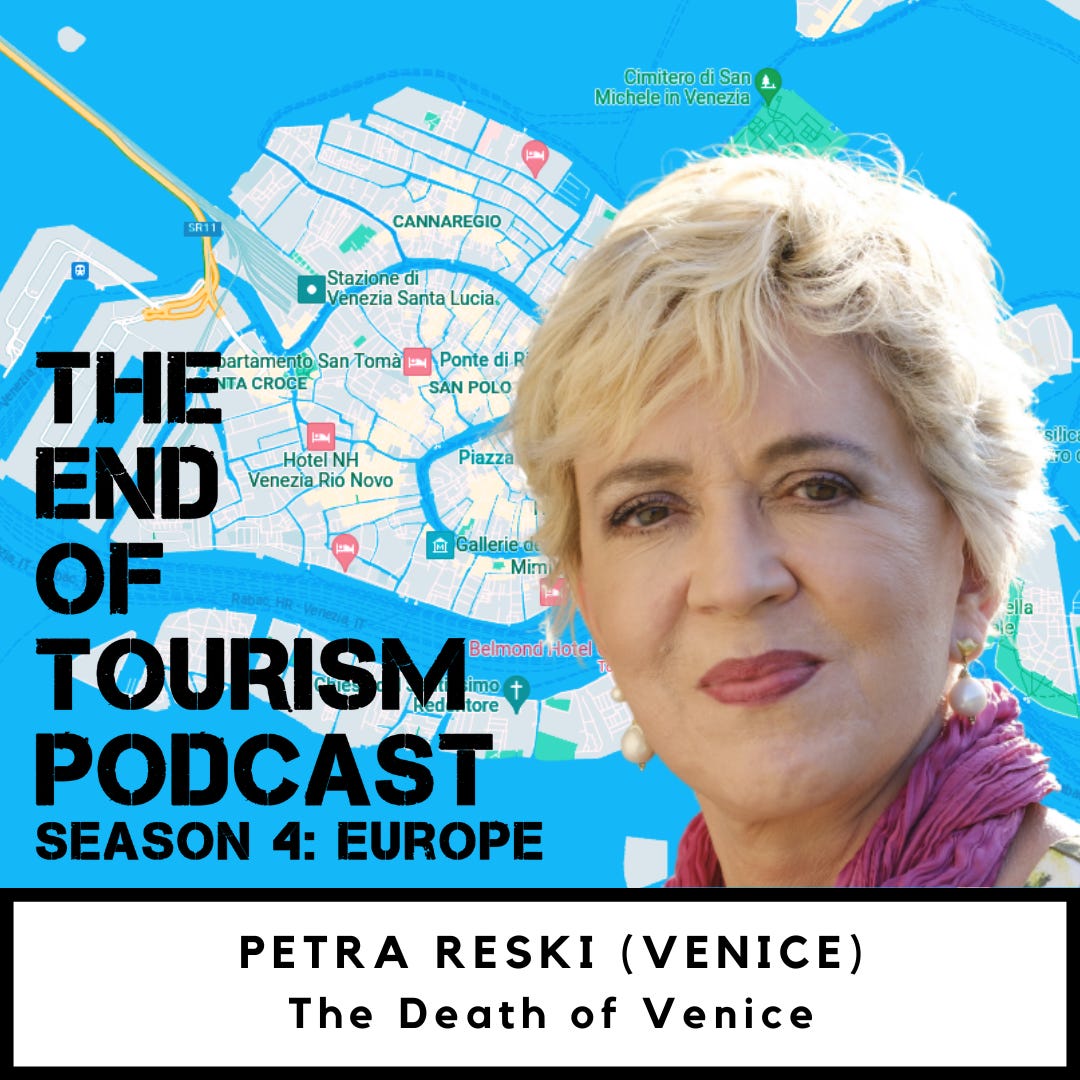S4 #2 | Protesting Evictions, Expats & the Golden Visa w/ Stop Despejos (Lisbon)
Description
On this episode of the End of Tourism Podcast, I’m joined by Joana and Davide of Stop Despejos (Stop Evictions). Based in Lisbon (Portugal), Stop Despejos is an anti-capitalist, feminist and anti-racist, horizontal political collective, fighting for the right to housing and the right to the city. Through mutual aid, direct action, obstruction of evictions and media campaigns, they defend the right of inhabitants to keep living in their homes and neighborhoods against institutional racism, soaring rental prices, the commodification of housing, touristification and gentrification.
As an autonomous grassroots movement, Stop Despejos believes that a trulyinclusive city can only be achieved by collective organization and solidarity networks between its inhabitants.
Show Notes
The Question of Rent in Lisbon
The Arrival of Ryan Air and Airbnb in Portugal
The Golden Visa Scheme
The Backlash Against Foreigners
Can be Change Happen Through Political Parties or Only at the Grassroots?
How to Build Solidarity in a Community
How Can We Live More Meaningfully?
Homework
Stop Despejos Official Website
Transcript
[00:00:00 ] Chris: Good morning, Joanna and Davide to the end of Tourism podcast. Thanks for joining me today.
[00:00:07 ] Davide: Thank you. Good morning, chris. Oh, good afternoon.
[00:00:10 ] Joana: Thank you for having, yes, good afternoon. Thank you for having us.
[00:00:14 ] Chris: My pleasure, my honor. Now, I'd like, since we're always doing this virtually, and since there's always time zones to deal with and that kind of thing, I'm hoping that you'd both be able to illustrate a little about where you find yourselves today and what the world looks like there a few days after these mass demonstrations that we'll discuss shortly.
[00:00:37 ] Joanne: Yes, well, I'm I'm in Alfama which is a really old neighborhood in the center of Lisbon. Actually Davide lives in the same neighborhood. And today, the weather is great. It's really sunny and you start to see a lot of tourists. You start to notice that you know, these amounts of tourists that we were used to see before the pandemic starts showing up again.
And honestly, I'm still recovering from the, the demonstration during the weekend because we were what, like three months working for this demonstration, probably around three, four months. So yeah, it was a lot of hard work, but it was worth it at the end for sure.
[00:01:27 ] Davide: I, I am in the same neighborhood in Alfama, and the sky is perfectly blue. It's classic Lisbon. It's a city that everybody loves.
[00:01:38 ] Chris: Thank you, David. Debbie Day. Thank you, Joanna. And so you both come to us today on behalf of an organization called Stop Despejos. Now, before we get into the gritty details of the demonstrations, I'm wondering if you two would be willing to share a bit about the history of the organization, why it was started, and perhaps when and by whom,
[00:02:07 ] Davide: Yeah, it, it's called Stop Despejos. It just means "stop eviction." It was founded in in 2017, about six years ago because at that time... In 2012, during Troika there was, after, after the financial crisis crisis in Portugal, I mean all over the world in Portugal the International Monetary Fund and the European Union understood that there was a great opportunity for real estate market in tourism in Portugal.
And so they convinced the government, the right-wing government to change the law about renting. And it was much, much simpler to evict people. Mm-hmm. It has become much simpler and one of the ways is actually not to renew contracts. Okay. So the contract normally lasts five years. So just five years after the new law, all people were evicted. And so including myself, and that's why we founded this organization. Wow. Joanna, do you have anything to add in that regard?
[00:03:18 ] Joana: Yes, I joined during 2018, so about an year after David joined. Actually, I also got evicted and it kind of started because of that, like I was in a really old place in the center.
And my landlord wanted to increase the rent for more than 300 euros. Wow. So that's the thing, like. There is no rent control happening in Portugal. If you are landlord and if your house is falling apart you can ask for whichever price you desire.
So, by that time I was doing some research, like thinking to myself, this cannot be legal. Like this is insane. And then I found out that it was indeed legal. And then I was doing another research to see if someone was fighting against this. So that's how I, I found out about Stop Despejos.
And by that time, my ex-boyfriend also had some issues with this landlord. So, yeah, that's how I got to Stop Despejos I'm there since 2018. It's also an autonomous collective. So we are not connected to any political party. We are self-sufficient. And we are anti-capitalist as well.
And we also work together with Habita, which is also a housing rights association that also fights, evictions, and provides legal advice to people that are on the risk of addiction. Mm-hmm.
[00:05:01 ] Chris: Yeah. And that name popped up as well, Habita, in some of the news press releases that came out regarding the demonstrations of this past weekend.
And so maybe we could start from there while it's still fresh in your minds with these recent actions that were organized by, Stop Despejo s. Nice. That came to pass this weekend and, and culminated in, in marches and protests on the 1st of April.
My first question is what did each of you see over the course of the protests and what has been the response in the aftermath?
[00:05:37 ] Joana: So this protest was organized not only by Stop Despejos and Habita was also by a lot of different collectives and associations, not only the housing rights collectives, also people that got in involved, dozens of different organizations that were preparing and working for this protest.We got around 20,000 people on the streets. I'm not good with numbers. David is the mathematician. But yes, around 20,000 people on the streets, which is massive for Portugal, to be honest.
There wasn't the housing rights protests in Lisbon. I think the last one was organized by Stop Despejos and Habita, which was during 2018, if I'm not mistaken. So yes, personally I wasn't expecting that much people on the streets, but it was really beautiful to see this amount of people organized and marching the streets and asking not only for better housing, but also the right to belong to the city.
You know, to have a city that it's not only made for tourists or for or for the rich or for private investors, but for a real inclusive city that is made for its people, for the people that works there, for the people that that lives there. So, that was really beautiful. It was beautiful to watch people shouting. It was really awesome.
[00:07:13 ] Chris: I imagine that being able to see, that amount of people, and not necessarily the number, that kind of abstract 20,000, but the number of people that you would've seen in the streets as well is a really deep way to measure the discontent and the crisis as opposed to just imagining that so many people or just like a few people share these sentiments, right.
[00:07:38 ] Joana: Yes, of course. And you would see everyone on the streets. Like, you would see people that living on the city center, but also people that live in the social neighborhoods, in the outskirts of the city as well.
Like all of them together demanding better housing and a better city and rent controls. So it was, it was amazing. When I woke up the next morning, I felt really grateful, even though there was some, there was some police violence at the end of the demonstration. Still, I woke up feeling really grateful for that day, for sure.
[00:08:14 ] Chris: Thank you. And David, how, what was your impression of the demonstrations?
[00:08:21 ] Davide: Yeah, it was, it was impressive. Let me say that Habita is a part of a European coalition called European Action Coalition for the Right to Housing and to the City. And together with Habita, we organized the outing Action Day every year.
But we could feel it, we could feel it because we have been organizing some preliminary meeting and they were full of people. I mean, you can feel this moment when the people wants to take some action and we could really feel it.
It was great.
[00:08:57 ] Chris: In fact
[00:08:59 ] Davide: our previous campaign was called " Retomar la Ciudad" (Take Back the City). Mm. And we really felt that for one day we took the city. Mm-hmm. It, it was great because. I mean, when you are walking in such a big demonstration and you look back and you see the street full of people and you know that you and your comrades are responsible somehow for that, it, it is really an amazing feeling. And now we will see where, what will happen. This depends on us, but also on, on the willingness of other people to, to join our
action.
[00:09:38 ] Chris:</st






